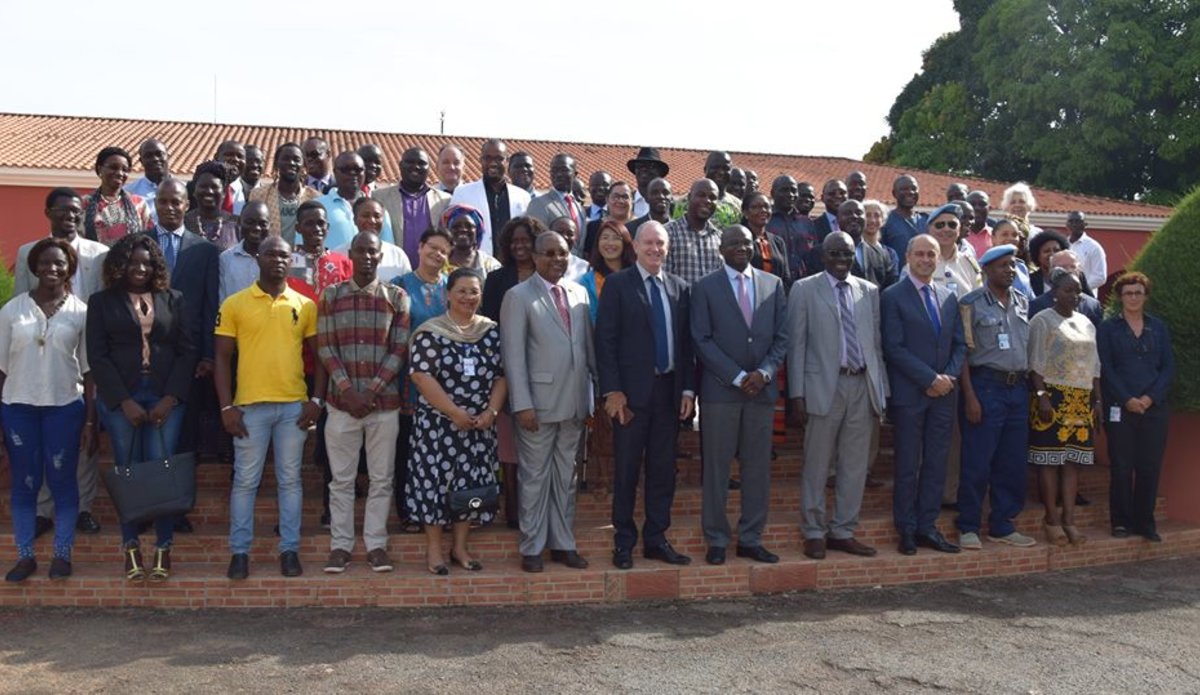Citizens claim United Nations must work to improve governance, stability and strengthening rule of law
The UNPAF review is "an expression of the common will of the two parties to further strengthen their partnership to break the vicious circle of political instability and poverty, in which the country has plunged for more than three decades," both partners said.
While recognizing the contribution of the United Nations, Guinean citizens consider that the organization should be more involved in improving the governance, stability, health, education, justice, security and respect for the Constitution of the Republic.
In S. Domingos, there are even those who believe that the United Nations should take the lead. "I am of the opinion that the United Nations should lead because when we ask for support for the elections, then we do not see good results. Perhaps if the UN takes over leadership of Guinea-Bissau people will understand each other, and can show how to run the country, " said Djibril Bodjam.
UNPAF contains four strategic intervention areas. The first is political stability and strengthening the rule of law. The second area is inclusive and sustainable economic growth. The third is equitable and sustainable access, through health services, nutrition, HIV / AIDS, water, sanitation and hygiene, education and quality protection. And the fourth is the promotion of sustainable management of the environment and natural resources, risk management and disaster prevention.
The overall budget of UNPAF is estimated at about US $ 340,000.
The Secretary General of the government, Olívio Pereira, guarantees that the government's effort focuses on affirming the state of law, without which there is no peace, stability, security and development that the country wants so much. "The great goal is that there will be peace and effective reconciliation between Guineans by 2020 so that we can actually begin a development process," said Olívio Pereira.
"This mid-term evaluation has great merit, since it allows us to perceive the interaction between the government and the United Nations in UNPAF implementation," said Marcelo D'Almeida, Director General of International Cooperation.
Led by UNIOGBIS, the result group 1 is coordinated by the head of the section of Combat Against Drug Trafficking and Organized Crime/Rule of Law, Antero Lopes.
"The balance so far has been positive, despite of the political turmoil and the lack of support from the international partners, Guinea-Bissau with the support of the United Nations has achieved some positive results, namely in the training of security forces, policy design, among others."
UNDP is leading the fourth area, whose aim is the sustainable management of the environment and natural resources. Dauda Saw, who coordinates this group said that in the two years of implementation of this partnership framework "satisfactory results have been achieved in terms of environmental policies and the creation of protected areas. This result allowed the country to reach its goal of increasing the national surface of protected area from 15% to 26.6% of national territory, " explained Dauda Saw.
The interim deputy Representative of UNICEF and coordinator of the third intervention area, Ainhoa Jaureguibeitia, also reported positive results.
"We can say, for example, that in the area of health, nutrition and HIV/AIDS, we have developed policies on quality services for people living with HIV/AIDS, the national pediatric AIDS plan, the production of the first national health data."
"We have also worked on access to quality services, for example coverage of 0 to 14 year old who have HIV, and we have over 4000 community health agents who are providing services to prevent and treat some diseases to families in all the regions of the country with a focus on children under 5 and pregnant girls," added UNICEF official.
According to Ainhoa Jaureguibeitia, "political instability, the strike of teachers and professionals in the health sector, lack of human resources in health are the main challenges" for the implementation of this strategy.
The mid-term review concluded that the current level of UNPAF's national ownership remains low and should be strengthened and that political instability in recent years has hampered such appropriation and mobilization of resources.
 UN
UN





